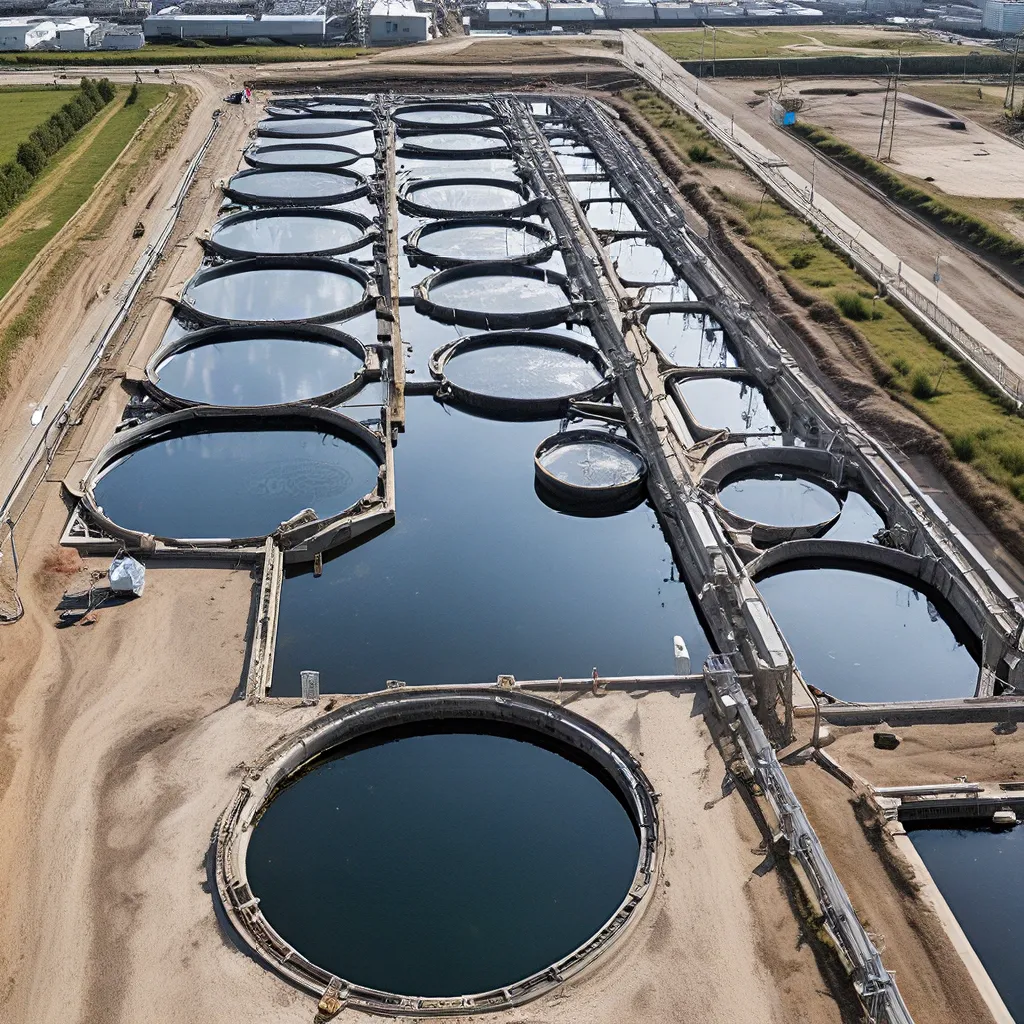
As the world grapples with the pressing issues of climate change and environmental sustainability, the intersection of wastewater treatment and the hydrogen economy has emerged as a promising avenue for addressing these challenges. In this article, I’ll delve into the exciting possibilities and the critical considerations surrounding this dynamic intersection.
The Rise of the Hydrogen Economy
The hydrogen economy is a concept that envisions a future where hydrogen becomes a primary energy carrier, with the potential to revolutionize the way we power our world. Hydrogen is an abundant, clean-burning fuel that can be produced from a variety of sources, including renewable energy and even wastewater treatment facilities.
One of the key drivers of the hydrogen economy is its potential to reduce our reliance on fossil fuels and lower greenhouse gas emissions. Hydrogen-powered vehicles, for instance, emit only water vapor, making them a cleaner alternative to traditional gasoline or diesel-powered cars. Similarly, hydrogen-powered electricity generation can provide a sustainable source of energy without the carbon footprint associated with fossil fuel-based power plants.
Wastewater Treatment: A Promising Source of Hydrogen
Believe it or not, wastewater treatment plants can play a critical role in the rise of the hydrogen economy. These facilities, which are responsible for processing and treating the wastewater generated by our communities, have the potential to produce biogas – a methane-rich fuel that can be refined into renewable natural gas (RNG) or even hydrogen.
The process is quite fascinating. As organic matter decomposes in the wastewater treatment process, it releases biogas, which is primarily composed of methane and carbon dioxide. This biogas can then be captured, cleaned, and upgraded to produce RNG, which can be used as a transportation fuel or for power generation. But the story doesn’t end there.
Turning Wastewater into Hydrogen
The biogas produced during wastewater treatment can also be further processed to extract the hydrogen content. This is done through a process called steam reforming, where the methane in the biogas is reacted with steam to produce hydrogen and carbon dioxide. The hydrogen can then be separated and used as a fuel for vehicles or for other industrial applications.
The beauty of this process is that it not only provides a sustainable source of hydrogen, but it also reduces the amount of methane – a potent greenhouse gas – that would otherwise be released into the atmosphere. By harnessing the power of wastewater treatment, we can turn a waste product into a valuable resource that can fuel the hydrogen economy.
The Potential Impact of Wastewater-Derived Hydrogen
The potential impact of wastewater-derived hydrogen cannot be overstated. According to the National Association of Clean Water Agencies, the energy generated at U.S. wastewater treatment plants could potentially meet 12% of the national electricity demand. This means that these facilities could become significant players in the hydrogen economy, contributing to the production of clean energy and fuels.
But the benefits extend beyond just energy production. Wastewater treatment plants can also produce RNG, which can be used to power natural gas vehicles, further reducing our reliance on fossil fuels. This dual-pronged approach – producing both hydrogen and RNG – can create a more diverse and resilient energy landscape, with wastewater treatment facilities playing a crucial role.
Challenges and Considerations
Of course, the integration of wastewater treatment and the hydrogen economy is not without its challenges. One of the primary hurdles is the cost of upgrading and retrofitting existing wastewater treatment plants to incorporate the necessary equipment and infrastructure for biogas and hydrogen production.
Additionally, there are regulatory and policy considerations that need to be addressed. Ensuring the safety and quality of the produced hydrogen is crucial, as is developing the necessary distribution and fueling infrastructure to make it accessible to consumers.
Navigating the Future
Despite these challenges, the potential benefits of wastewater-derived hydrogen are too significant to ignore. Experts believe that with the right investments and policy frameworks, the hydrogen economy could become a reality sooner rather than later. And wastewater treatment facilities, once seen as simply necessary infrastructure, may soon be viewed as key players in the clean energy revolution.
As I’ve delved into this topic, I’ve been struck by the ingenuity and foresight of those who are exploring the intersection of wastewater treatment and the hydrogen economy. It’s a fascinating intersection of science, technology, and environmental sustainability, and I’m excited to see how it unfolds in the years to come.
If you’re like me and you’re fascinated by the potential of wastewater-derived hydrogen, I encourage you to keep an eye on the latest developments in this space. And if you’re looking to get involved in this exciting field, be sure to check out the services offered by Alpha Wastewater, a leading provider of wastewater treatment solutions.